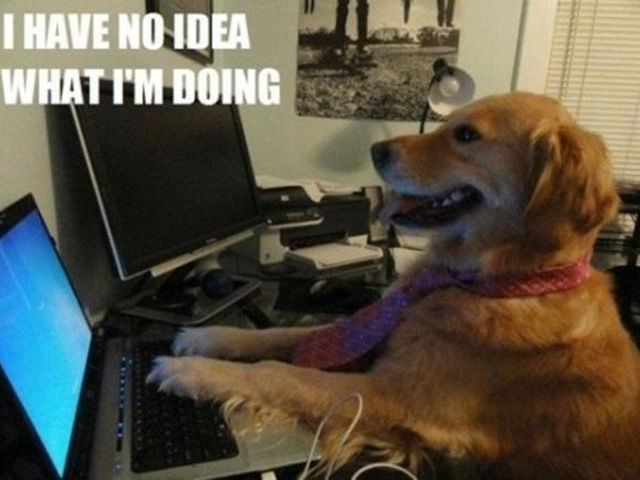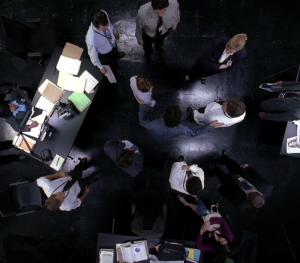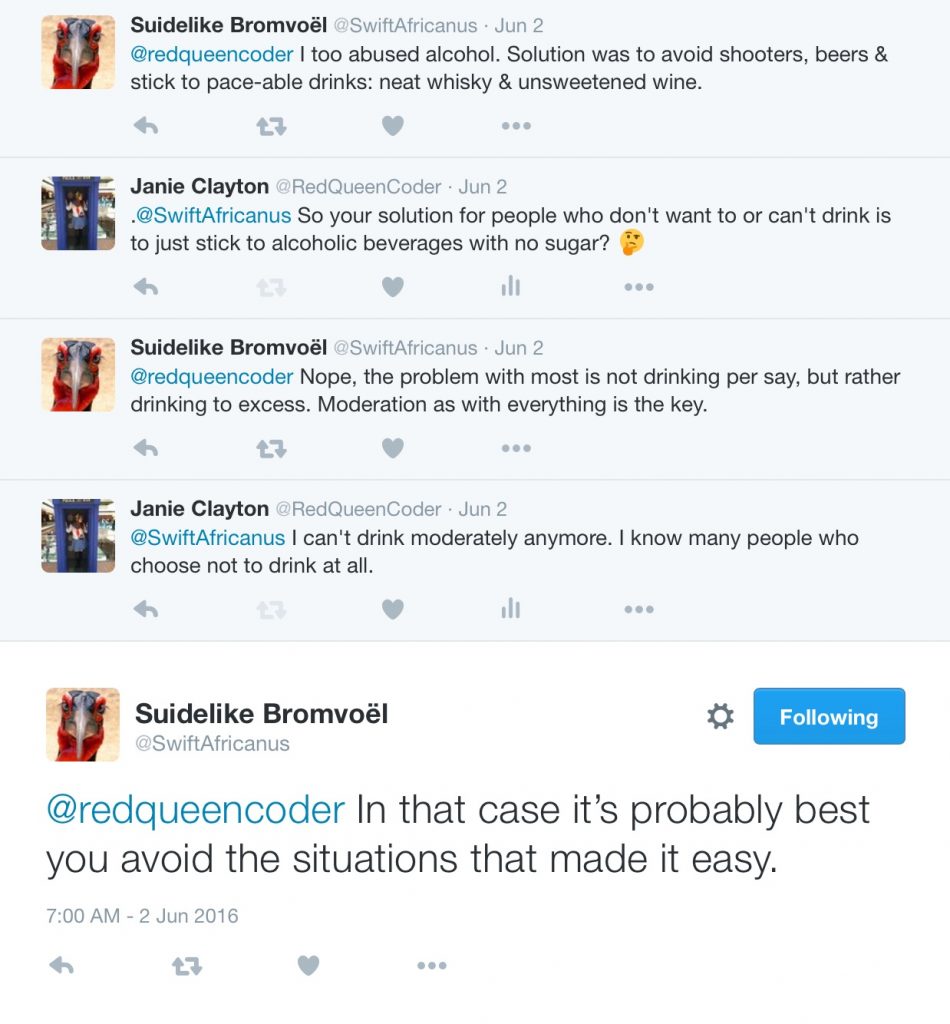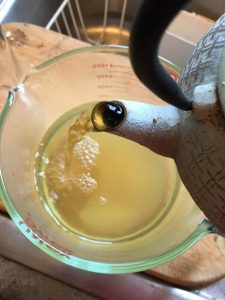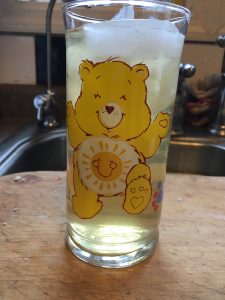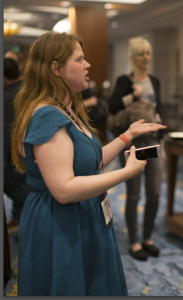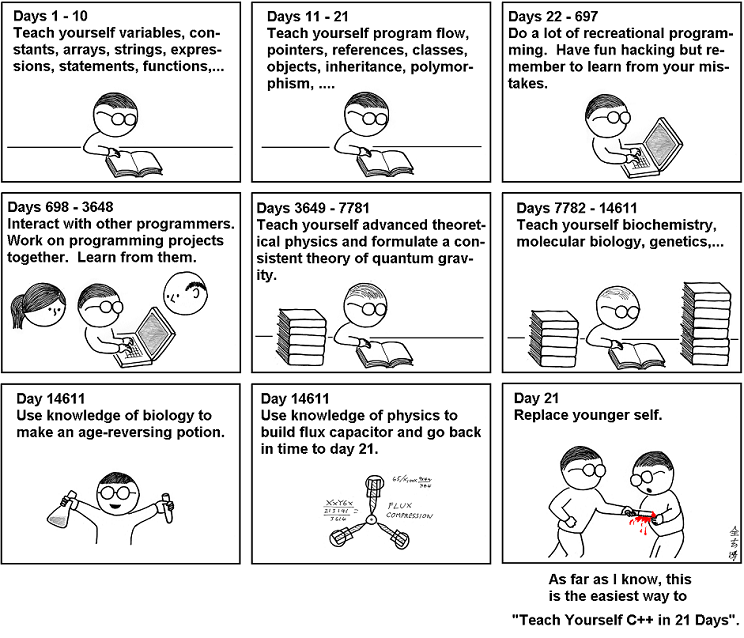Ten years ago around now, back in 2006, I was beginning to realize I had made a terrible mistake.
I graduated from the University of Wisconsin-Whitewater with a Bachelor’s degree in Journalism with a minor in English composition. I declared this major two years earlier. I attended my first journalism class and the teacher told us to look to our left, then look to our right. He told us that ten years after leaving college only one out of fifty journalism majors were still working in journalism and everyone else had moved on to something else.
I looked around me with a smug expression thinking “Man I feel sorry for the other forty-nine people here who are wasting their time!” Clearly I was not the brightest college student as I should have heard this statement and thought “Run for your life!!”
Here we are, ten years later, and I am one of the forty-nine. I don’t even really know why I chose a journalism major. I knew I wanted to write and I knew I didn’t want to be a high school teacher, so that kind of left journalism and getting a PhD in English and praying that by some miracle I found a tenure position or wrote a best seller. I think the best seller would probably have been the easier goal to achieve.
I kind of wanted to learn a trade, but universities don’t do that. Trades were for people who were too dumb to get into “real” college. I had a Photoshop class with a dude who was forced to retire from his paper because he was so old. He had been a film photographer for forty years so they figured he would be the guy to teach Photoshop. Another student introduced him to the Layers property. There was no hands-on anything. There were plenty of hipsters in skinny jeans gushing about Ayn Rand, however.
I got really good at writing research papers and getting on the bad side of professors who did not like being reminded that they were wasting their lives teaching MacBeth to a bunch of brain dead just barely adults who wanted to drink and didn’t really know what else they were doing with their lives.
Besides the not drinking part, I was also one of those brain dead kids who didn’t know what I was doing with my life. I knew when I was in grade school I was supposed to be learning how to make straight A’s so that when I went to high school I would have a good GPA. I was supposed to do well on the ACT so that I could get into UW-Madison and get an engineering degree, even though I didn’t know what engineers actually did. When that did not pan out, I was supposed to attend another UW system school and get a degree in something, because if I got a degree in something, then there would be a job waiting for me at the end of college.
After I was informed that I had in fact completed all of my course requirements I dutifully went down to the job placement office and asked them what I do now. They said “How are we supposed to know?”
“Um, this is the job placement office. What do you do here?”
“We tell you to put your resume on Monster and connect with the people who you did an internship for, if you did one.”
“I didn’t do an internship. Don’t you have, like, companies that reach out to you to help you place recent graduates with them??”
“Why would you think that?”
I found out later that this stuff existed, but the people I talked to had zero interest in helping me out. I was easily deterred because I didn’t know any better. I also realized I was very screwed.
I didn’t have a demo reel to show prospective employers. I hadn’t done an internship. I wanted to work for NPR, but NPR’s Madison hub was at UW-Madison and they would only hire interns from UW-Madison and if there were jobs after that they would only hire people who had already worked there.
I realized that not only was I missing a lot of requisite skills, I also was missing a network of people to call on to help me find a job.
I had been raised by my dad to believe that personal connections were completely meaningless. If someone was looking to hire, they would put out an ad in the classifieds. They would impartially look at the resumes of everyone that applied and if you had a better GPA than someone else, you would be picked.
This is complete and total bullshit.
I spent a decent chunk of time being incredibly angry that I did not get picked over less qualified people simply because the company already knew this person because they were referred or had interned there. I realized very quickly that if I wanted to get jobs I had to be that person that people knew rather than getting angry about how “unfair” things were.
I also realized these placed wanted people who actually knew how to do technical stuff that I didn’t know how to do. I hadn’t learned any of this stuff in college and I didn’t know how to learn it, so I held my nose and enrolled at a for-profit technical college specializing in audio and video technology.
I spent two years there getting to touch real sound boards and real cameras. A lot of our classes were working through the Adobe Classroom in a Book for things like Illustrator and After Effects. This is technically something I could have done from home, but I would have had to convince someone to buy copies of these programs for me and I would have had to have had the discipline to just sit my ass down and work through the book without the threat of a failing grade hanging over my head.
This place also exposed me to something I couldn’t get at my first college: Connections.
My mentor at this school was the guy that got Slipknot signed to a record label and engineered their first album. Another guy was a guitarist on a Nine Inch Nails album. Yet another worked with Michael Jackson.
This was the school where I also learned how to learn on my own. Halfway through my time there, there was a massive upgrade to both the Adobe suite and Apple’s Final Cut Pro suite. I didn’t know how to work with the new software and so I asked a teacher for help. He sat down and worked with me and showed me where everything moved.
I looked at him and asked, “How do you know this? Who taught this to you?”
He looked at me kind of confused and said, “Well, nobody. I got a copy of this a few days before class started and I taught it to myself because I had to know it to teach you.”
That was the first time it ever occurred to me that one day I was going to be on my own. That technology changes and you can’t just keep throwing out money every year to keep taking classes to learn all the changes. When you’re a professional, you’re responsible for knowing your own stuff.
After that I quit asking as many questions. I tried to find out the answer for myself before I would ask for help. Slowly over time I stopped needing to ask for help altogether because I could find any answer I needed.
I worked really hard to try and connect with these people, but I ran into a wall that would prove insurmountable: I was a woman.
As much as people bitch about how sexist the programming community is, it’s nothing compared to the music industry. There were companies expressly telling the school not to send them female candidates because they would not hire women. The guys in my class kind of treated me like a talking dog and would never take me seriously. They would all hang out at strip clubs after school and it was very clear that I was never going to be welcome into their ranks.
Well, actually, it’s possible I might have, but I think I would have been raped and drugged and generally abused for a job that pays ten bucks an hour. No thanks.
After doubling down on this bad bet, I had to find yet another thing to do, which was how I got into programming. I learned my lessons from these previous experiences in that it was really stupid to try and break into “prestige” jobs where there are fifty qualified people for every job out there. Even in something like programming, where there is supposedly a lot of demand, you have to know people and they have to know you. You can either do that by dropping close to six figures getting a computer science degree from UW-Madison or you can work your ass off networking with people and making public contributions on places like GitHub (or this blog).
Even though I never got paid a dime as a journalist, the training I received for that has proven invaluable. I learned how to distill down a lot of information into its most important parts. I learned how to ask good questions and figure out what the root of an issue was. I learned how to write very clearly, effectively, and concisely. My experience doing radio helped me tackle conference speaking, which gave me the kind of visibility I needed to break into programming.
I learned to hustle and work my ass off. I did not want to be in a position like I was ten years ago when I assumed the world owed me something just because someone gave me shitty life advice.
Life doesn’t owe you anything. People will pay you if you can do something for them that is more valuable than what they are paying you. People are more likely to pick whoever is the first candidate that is good enough and if you’re one of the first people they consider you’re more likely for that person to be you.
In spite of all the pearl clutching about how writing as a skill is going in the crapper, there is a lot of opportunity out there for people who can write effectively, especially in highly technical fields. I think it’s easier to learn the tech after the writing because if you learn the tech first, you’ll find someone to pay you enough money to not bother with learning the writing. That is never the case the other way around.
Even though things were pretty bleak ten years ago, failing spectacularly was a wonderful learning experience. I am happy I failed early so that I could have enough time to process that experience and pivot to something else before it was too late. I see people who never struggled with anything suddenly hit road bumps in their thirties and have no fucking clue what they’re supposed to do. I am proud of the person I have become and the life I have built for myself.
That is the value of a liberal arts education.
